Salmaan Keshavjee
Harvard University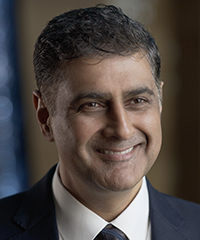
Salmaan Keshavjee is Professor of Global Health and Social Medicine at Harvard Medical School, and director of the School’s Center for Global Health Delivery. He teaches in the Department of Anthropology at Harvard, serves as physician and Associate Professor of Medicine at Brigham and Women’s Hospital, and is Faculty Dean of Adams House at Harvard College.
Professor Keshavjee conducted doctoral research in medical anthropology at Harvard University on the health transition in post-Soviet Tajikistan, focusing on the anthropology of policy and healthcare delivery. He is the author of Blind Spot: How Neoliberalism Infiltrated Global Health (2014), which analyses the penetration of neoliberal political and economic ideas into global health and health care practice. For the last 25 years he has worked Partners In Health (PIH), the international solidarity organization that works alongside communities to fight disease and poverty, on optimizing care delivery for TB, multidrug-resistant TB, and TB/HIV in Russia, Lesotho and Peru. Between 2007 and 2010, Dr. Keshavjee served as the chair of the Green Light Committee Initiative, a Stop TB Partnership/WHO initiative which helped countries gain access to high-quality second-line anti-TB drugs, and is a co-founder of Advance Access & Delivery, a non-profit committed to addressing critical challenges in access to medicines and the delivery of comprehensive health care, particularly for economically and socially vulnerable groups. He currently Chairs the Steering Committee of the Zero TB Initiative, a global alliance of communities working towards the implementation of comprehensive TB care.
Marty Zeve
Harvard University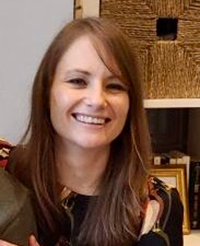
Lindsey Marten Zeve received her PhD in social anthropology from Harvard University in 2019. Her research focuses on the social, political, and economic determinants of non-communicable disease research and public health policy in Hong Kong and Guangzhou, China. Her interests lie at the intersection of postcolonial technoscience, aging and elderhood, and health equity. As a lecturer in the Department of Global Health and Social Medicine at Harvard Medical School, she works closely with senior faculty to develop social medicine curricula and programming and teaches related subjects both at the Medical School and at the College. She is currently working on adapting material from her dissertation for publication. She lives in Jamaica Plain with her husband and two dogs, and prefers to go by her childhood nickname, "Marty."
https://ghsm.hms.harvard.edu/faculty-staff/lindsey-marten-zeve
Carole Mitnick
Harvard University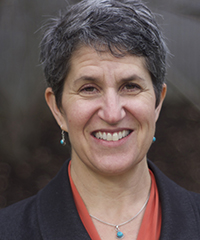
Carole Mitnick’s 30-year career in global health has been deeply influenced by Paul Farmer. She first met Paul when she was working on her thesis for her masters in science in international health epidemiology and ecology at the Harvard TH Chan School of Public Health. Paul was essential in helping Dr. Mitnick shape her thesis, and subsequent doctoral dissertation, to confront and address underlying structural factors that determine who gets sick, who gets care, and who gets better. At PIH’s Institute for Health and Social Justice, which was created with funds from the MacArthur “genius” grant awarded to Paul, Carole led the Institute’s critical examination of tuberculosis and health of prisoners in the mid-1990s. Upon completion of her doctorate in 2002, she joined the faculty at the then Department of Social Medicine at HMS. Drawing on inspiration from mentorship by and collaboration with Paul, she has developed a research, training, and advocacy program to: 1) expose gaps in care for people experiencing TB, particularly drug-resistant TB; 2) apply modern methods to observational research and clinical trials to develop improved care for TB and post-TB lung disease; 3) engage in accompaniment and policy advocacy to translate improved care from research to delivery; 4) promote equity in access to improvements in care and to the methods, resources, and data used to realize these improvements. Dr. Mitnick collaborates extensively with Partners In Health’s Boston coordinating site and care-delivery sites in Peru, Lesotho, and Kazakhstan to define and implement research and delivery activities.
https://ghsm.hms.harvard.edu/faculty-staff/carole-diane-mitnick
Joia Mukherjee
Harvard University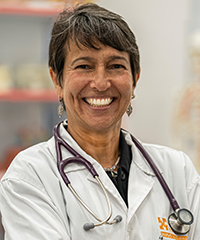
Dr. Joia Mukherjee is a physician, educator, and activist, trained in Infectious Disease, Internal Medicine, Pediatrics, and public health. Since 2000, Dr. Mukherjee has served as the Chief Medical Officer of Partners In Health, an international medical organization with programs in the United States, Haiti, Rwanda, Lesotho, Malawi, Sierra Leone, Liberia, Peru, Mexico, Russia, Kazakhstan, the Navajo nation and now, in the COVID-19 pandemic, in cities and states across the U.S. Dr. Mukherjee coordinates and supports PIH’s efforts to provide high quality, comprehensive health care to the poorest and most vulnerable. She is an Associate Professor at the Division of Global Health Equity at the Brigham and Women’s Hospital and in the Department of Global Health and Social Medicine at Harvard Medical School. Dr. Mukherjee is also on the faculty at the University of Global Health Equity in Rwanda. Joia teaches infectious disease, global health delivery, and human rights to health professionals and students from around the world and directs the Masters degree program in Global Health Delivery at Harvard Medical School. She is the author of Introduction to Global Health Delivery: Practice, Equity, Human Rights, second edition, published in 2021 by Oxford University Press. Her scholarship focuses on the health delivery, Universal Health Coverage, and human rights. Joia is a mother and a singer.
Mercedes Becerra
Harvard University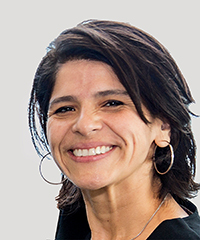
Dr. Mercedes Becerra's research focuses on the treatment and epidemiology of tuberculosis. She studies the burden of tuberculosis in the child and adult household contacts of tuberculosis patients. She also studies strategies to improve tuberculosis screening and treatment in children and high-risk households.
Kim Sue
Yale University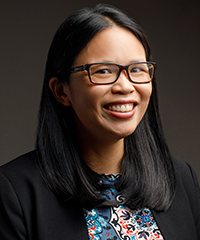
Dr. Kimberly Sue is an Assistant Professor of Medicine with the Program in Addiction Medicine (Division of General Internal Medicine) at Yale University School of Medicine. She is the former Medical Director of the National Harm Reduction Coalition, New York, NY, which strives to improve the health and wellbeing of people who use drugs. Currently, she serves as an Attending Physician at the Central Medical Unit, APT Foundation, which provides primary care to patients receiving methadone and other substance use treatment services and supervises fellows and trainees within the Yale Addiction Medicine Fellowship program. She also is an Attending Physician on the hospital-based Yale Addiction Medicine Consult Service. She also holds board certification in both Internal Medicine and Addiction Medicine. Dr. Sue trained at Harvard's MD-PhD Social Science Program, and has a PhD in sociocultural anthropology. Her book, Getting Wrecked: Women, Incarceration, and the American Opioid Crisis (2019), is based on her research on women with opioid use disorder in Massachusetts prison and jails. Her current research interests include harm reduction, stigma, gender/women and substance use, and overdose response strategies on local, state, and federal levels.
Byron Good
Harvard University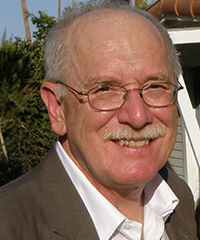
Byron Good, Ph.D., is Professor of Medical Anthropology and former Chair (2000-2006) of the Department of Global Health and Social Medicine, and Professor in Harvard's Department of Anthropology. He is a medical, psychological, and psychiatric anthropologist who works broadly in the field of global mental health. For the past 26 years, Prof. Good has been conducting research and developing projects focused on improving mental health services in Indonesia. He has led a team of researchers at Gadjah Mada University in Yogyakarta, Java, developing and evaluating community-based programs for persons suffering from psychotic illness. He also led, with Prof. Mary-Jo DelVecchio Good, a ten-year program of activities documenting and responding to the mental health consequences of military violence against civilians in post-tsunami, post-conflict Aceh, supported by the International Organization for Migration. He has spent more than three decades developing recovery-oriented mental health projects in Asia.
Prof. Good has spent 40 years working with Harvard graduate students and post-doctoral fellows. (Paul Farmer was one of his MD and PhD students.) He co-directed, with colleagues, a 24-year NIMH training program in culture and mental health services and a 17-year Fogarty International Center program that brought psychiatrists from Shanghai and Beijing to Harvard in a program focused on mental health services and policy for China. He is currently active in the MMSc Program in Global Health Delivery in the Department of Global Health and Social Medicine and the PhD and MA programs in the Department of Anthropology. Prof. Good's c.v. lists 13 books he has authored or co-edited and 138 articles and book chapters. He received the 2017 Lifetime Achievement Award from the Society for Psychological Anthropology and the 2010 Society for Medical Anthropology’s Lifetime Mentoring Award.
https://ghsm.hms.harvard.edu/faculty-staff/byron-joseph-good
Mary-Jo DelVecchio Good
Harvard University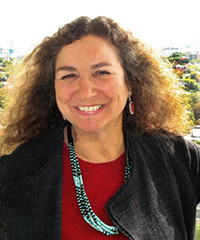
Mary-Jo DelVecchio Good, PhD, is Professor of Global Health and Social Medicine, Harvard Medical School, emerita. She is a comparative sociologist and medical anthropologist, who studies the culture and power of biomedicine and psychiatry globally, with a focus on Indonesia and the US. She joined the Department of Social Medicine in 1983, teaching social medicine electives to medical students, MD/PhD students (including Paul Farmer), and MMSc students in Global Health Delivery. She also taught undergraduate and graduate students in sociology and anthropology. At HMS. Prof. Good codirected, with colleagues, and was core faculty in a 24 year NIMH training program in culture and mental health services, a 17 year Fogarty International Center training fellowship for psychiatrists from Shanghai and Beijing, the 6 year Freeman Fellowship program, with fellows from Thailand, China, Taiwan, Hong Kong and Indonesia, and a 10 year Carnegie Fellowship program that brought fellows from Tanzania and Kenya to the Department. Currently, as a faculty associate of the Weatherhead Center for International Affairs, she continues to co-chair a university seminar on Culture, Psychiatry and Global Mental Health, originally initiated in 1986 as part of the NIMH fellowship seminar in Culture and Mental Health.
Beginning as a Fulbright Senior Scholar in 1996, Professor Good established ongoing collaborations with the University of Gadjah Mada medical faculty, in Yogyakarta, Indonesia, and contributed to the launching of the Center for Bioethics. She led researchers in studies of the culture of medicine and medicine’s modernist projects, including childhood cancer, end of life care, strengthening mental health systems, and a post-disaster/post-conflict program in Indonesia's Aceh province. In July of 2022, she was honored with the Widya Wiyata Award for Global Partnership in Bioethics by UGM Faculty of Medicine, Public Health, and Nursing.
Professor Mary-Jo DelVecchio Good is a recipient of the William Silen Lifetime Achievement Award in Excellence in Mentoring from Harvard Medical School (2019), a Lifetime Achievement Award from the Society for Psychological Anthropology (2020-2021), and the Silver Magnolia Award for contributions to the culture and development of the people of Shanghai. In 2020, she received a Lifetime Achievement Award from Society for Psychological Anthropology. Professors Mary-Jo and Byron Good co-edited the international journal Culture, Medicine and Psychiatry 1986-2004. Professor Good has published 7 books, 6 special journal issues, over 125 peer reviewed articles and book chapters, including published reports on gender, conflict and psychological trauma and post-conflict recovery experiences.
https://scholar.harvard.edu/maryjo_good
https://ghsm.hms.harvard.edu/faculty-staff/mary-jo-delvecchio-good
https://sociology.fas.harvard.edu/people/maryjo-delvecchio-good
Adia Benton
Northwestern University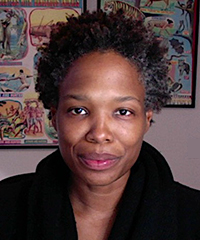
Adia Benton is an associate professor of Anthropology and African Studies at Northwestern University, where she is affiliated with the Science in Human Culture Program. Her first book, HIV Exceptionalism: Development Through Disease in Sierra Leone, won the 2017 Rachel Carson Prize, which is awarded by the Society for Social Studies of Science (4S) to the best book in the field of Science and Technology Studies with strong social or political relevance. Her body of work addresses transnational efforts to eliminate health disparities and inequalities, and the role of ideology in global health. In addition to ongoing research on public health responses to epidemics, including the 2013-2016 West African Ebola outbreak, she has conducted research on the growing movement to fully incorporate surgical care into commonsense notions of "global health." Her other writing has touched on the politics of anthropological knowledge in infectious disease outbreak response, racial hierarchies in humanitarianism and development, techniques of enumeration in gender-based violence programs, and racial capital in professional sports. She has a PhD in social anthropology from Harvard University, an MPH in international health from the Rollins School of Public Health at Emory University, and an AB in Human Biology from Brown University. She has held a postdoctoral fellowship at Dartmouth College and visiting positions at Oberlin College and in the Department of Global Health and Social Medicine at Harvard Medical School.
https://anthropology.northwestern.edu/people/faculty/adia-benton-.html
Anne Becker
Harvard University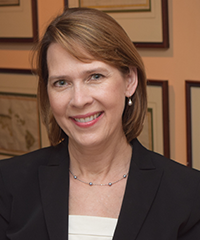
Anne E. Becker, MD, PhD, SM isDean for Clinical and Academic Affairs, Professor of Psychiatry,and Presley Professor of Global Health and Social Medicine at Harvard Medical School. A medical anthropologist and psychiatrist, Dr. Becker’s research includes the social and cultural mediation of presentation and risk for eating disorders, social barriers to care for mental disorders, and school-based mental health promotion. She has led investigations of the impact of rapid social transition on eating pathology in Fiji’s indigenous iTaukei population and has served as co-principal investigator on school-based mental health interventions in Haiti and Lebanon. In addition to authoring or co-authoring over 150 publications in the scientific literature, Dr. Becker is the author of Body, Self, and Society: The View from Fiji (U. Penn Press) and co-editor of Global Mental Health: An Introductory Framework for Training and Practice (Routledge, forthcoming). Dr. Becker is founding and past Director of the Eating Disorders Clinical and Research Program at Massachusetts General Hospital, former vice chair of the HMS Department of Global Health and Social Medicine, and past president of the Academy for Eating Disorders. She served as a member of the American Psychiatry Association’s DSM-5 Eating Disorders Work Group; she is former associate editor for global initiatives of the International Journal of Eating Disorders and past co editor-in-chief of Culture, Medicine and Psychiatry. She was the 2013 recipient of the Price Family Award for Research Excellence from the National Eating Disorders Association and the 2018 Leadership Award in Research from the Academy for Eating Disorders.
David Jones
Harvard University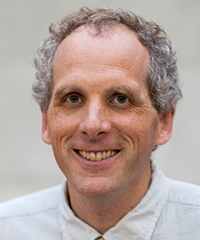
Trained in psychiatry and history of science, David Jones is the A. Bernard Ackerman Professor of the Culture of Medicine at Harvard University. His research has focused on the causes and meanings of health inequalities (Rationalizing Epidemics: Meanings and Uses of American Indian Mortality since 1600) and the history of decision making in cardiac therapeutics (Broken Hearts: The Tangled History of Cardiac Care). He is currently at work on four other histories, of the evolution of coronary artery surgery, of heart disease and cardiac therapeutics in India, of the threat of air pollution to health in India, and of the history of air pollution research in the United States. His teaching at Harvard College and Harvard Medical School explores the history of medicine, medical ethics, and social medicine.
Jamaica Kincaid
Harvard University
Jamaica Kincaid is a writer, novelist, and professor. Her works include Annie John, Lucy, The Autobiography of My Mother, and Mr. Potter, as well as her classic history of Antigua, A Small Place, and memoir My Brother. Her first book, the collection of stories At the Bottom of the River, won the Morton Dauwen Zabel Award from the American Academy and Institute of Arts and was nominated for the PEN/Faulkner Award for Fiction. Kincaid’s last novel, See Now Then, was published in 2013. Her love of gardening has also led to several books on the subject, including My Garden (2000) and Among Flowers: A Walk in the Himalaya (2005), a memoir about a seed-gathering trek with three botanist friends. Among Flowers was rereleased in late 2020 with a new introduction by the author. Professor in the Department of African and African American Studies at Harvard University, Kincaid was elected to the American Academy of Arts and Letters in 2004. She has received a Guggenheim Award, the Lannan Literary Award for Fiction, the Prix Femina Étranger, Anisfield-Wolf Book Award, the Clifton Fadiman Medal, the Dan David Prize for Literature in 2017, and the Hadada Award from The Paris Review in 2022.
João Biehl
Princeton University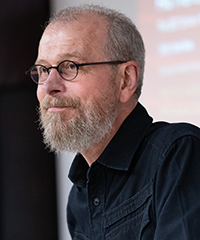
João Biehl is the Susan Dod Brown Professor and Chair of Anthropology at Princeton University, where he is also the Director of the Brazil LAB. In his ethnographic work, Biehl has been concerned with how science and technology move from laboratories to markets, health policies, and unequal lifeworlds, paying special attention to the pharmaceuticalization of care and the judicialization of the right to health. His book Vita: Life in a Zone of Social Abandonment garnered seven major book awards, including the J. I. Staley Prize and the Margaret Mead Award. Will to Live: AIDS Therapies and the Politics of Survival was awarded the Wellcome Medal of Britain’s Royal Anthropological Society. Focused on the humanities of the unlettered, Biehl has recently co-edited Arc of Interference: Medical Anthropology for Worlds on Edge, On Listening as a Form of Care, and Unfinished: The Anthropology of Becoming. He is co-editor of the Duke Press book series Critical Global Health and co-editor of the books When People Come First: Critical Studies in Global Health and Subjectivity: Ethnographic Investigations. Biehl has been a Guggenheim Fellow and a Member of the Institute for Advanced Study, and he is the recipient of Princeton’s Presidential Distinguished Teaching Award and Princeton’s Graduate Mentoring Award. He is currently leading the research projects Amazonian Leapfrogging and Engaging Indigenous Ecologies of Knowledges. Biehl has a longstanding interest in the archives of insurgencies in postcolonial Brazil and is preparing the book manuscript My Mucker War.
https://anthropology.princeton.edu/people/faculty/joao-biehl
Haun Saussy
University of Chicago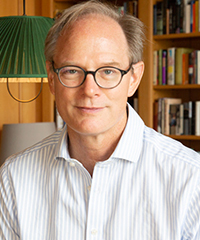
Haun Saussy is editor of Partner to the Poor: A Paul Farmer Reader (2010). He is also University Professor at the University of Chicago, teaching in the department of East Asian Languages & Civilizations and in the Committee on Social Thought. His work attempts to bring the lessons of classical and modern rhetoric to bear on several periods, languages, disciplines and cultures. Among his books are The Problem of a Chinese Aesthetic (1994), Great Walls of Discourse (2001), The Ethnography of Rhythm (2016), Translation as Citation: Zhuangzi Inside Out (2017), Are We Comparing Yet? (2019), The Making of Barbarians: Chinese Literature in Multilingual Asia (2022) and the edited collections Sinographies (2007), and Comparative Literature in an Age of Globalization(2008). As translator, he has produced versions of works by Jean Métellus (When the Pipirite Sings, 2019) and Tino Caspanello (Bounds, 2020), among others. He is a former Guggenheim Fellow, a fellow of the American Academy in Berlin, and a member of the American Academy of Arts and Sciences.
Vikram Patel
Harvard University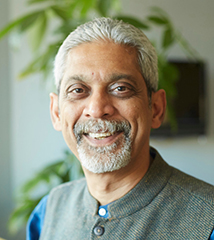
Vikram Patel is The Pershing Square Professor of Global Health at the Harvard Medical School where he leads the Mental Health for All Lab. His work has focused on the burden of mental health problems, their association with social disadvantage, and the use of community resources for their prevention and treatment. He is a co-founder of the Centre for Global Mental Health (at the London School of Hygiene & Tropical Medicine) and Sangath, an Indian NGO which won the MacArthur Foundation’s International Prize and the WHO Public Health Champion of India prize. He is a Fellow of the UK's Academy of Medical Sciences and has served on the Committee which drafted India’s first National Mental Health Policy and the WHO High Level Independent Commission for Non-Communicable Diseases. He co-led the Lancet Commission on Global Mental Health & Sustainable Development and the Lancet-World Psychiatric Association Commission on Depression; he serves as co-chair of the Lancet Citizens Commission on Reimagining India’s Health System. He has been awarded the Chalmers Medal, the Sarnat Prize, the Pardes Humanitarian Prize, the Klerman Senior Investigator Prize, an Honorary OBE and the John Dirk Canada Gairdner Award in Global Health. He has been awarded Honorary Doctorates from Georgetown University, York University, Stellenbosch University and the University of Amsterdam. He was listed in TIME Magazine’s 100 most influential persons of the year in 2015.
Allan Brandt
Harvard University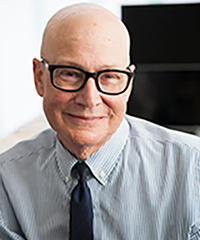
Allan M. Brandt is the Amalie Moses Kass Professor of the History of Medicine and Professor of the History of Science at Harvard University. Brandt holds a joint appointment there and at Harvard Medical School, where he is currently serving as the interim chair of the department of Global Health and Social Medicine. He also served as Dean of the Graduate School of Arts and Sciences from 2008 to 2012.
Brandt earned his undergraduate degree at Brandeis University and his Ph.D. in American History from Columbia University. His work focuses on twentieth-century social and ethical aspects of health, disease, medical practices, and global health. Brandt is the author of No Magic Bullet: A Social History of Venereal Disease in the United States since 1880 (1987); and co-editor of Morality and Health (1997). He has written on the social history of epidemic disease; the history of public health and health policy; and the history of human experimentation. His book The Cigarette Century: The Rise, Fall, and Deadly Persistence of the Product that Defined America received the Bancroft Prize in 2008 and the William H. Welch Medal in 2011.
Brandt has been elected to the National Academy of Medicine and the American Academy of Arts and Sciences. In 2015 he was awarded the Everett Mendelsohn Excellence in Mentoring Award by the Harvard Graduate School of Arts and Sciences. From 2019 to 2020, Brandt received fellowships from the American Council of Learned Societies and the Radcliffe Institute for Advanced Study. He is currently writing about the history and ethics of stigma and its impact on patients and health outcomes.